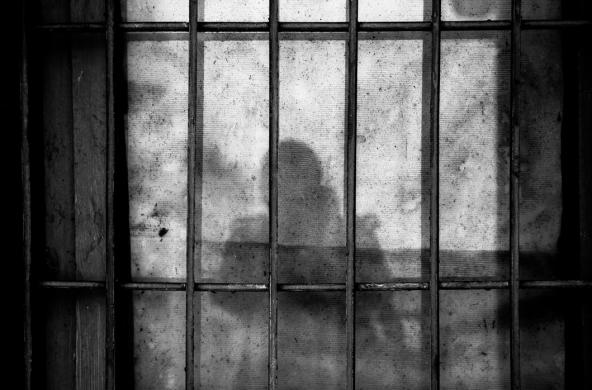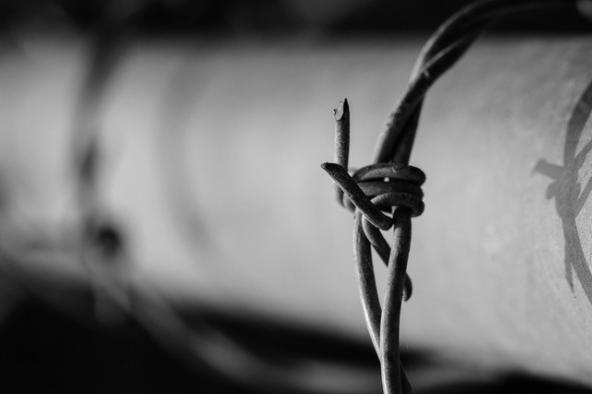
Follow-up to the initiative on the conditions of detention and treatment of death row prisoners
International standards
In October 2018, the association Planète Réfugiés-Droits de l’Homme (PRDH), a member association of the World Coalition Against the Death Penalty, launched an international initiative at the Paris Bar for the World Day Against the Death Penalty on October the 10 2018, which focused on the conditions of detention and treatment of death row prisoners worldwide. In this perspective, PRDH’s action aims to develop, in partnership with the Legal Clinic in Freedom Law of the Université Grenoble-Alpes’ law school, a research, action and advocacy work for at better taking into account in international law the issue of the conditions of detention and treatment of death row prisoners worldwide, in order to draft and adopt additional guidelines on this issue, and, more generally, to obtain international recognition of death row prisoners as a specific legal category for persons deprived of their liberty.
This research led to the publication of a first article at the end of November 2018 on the Coalition’s website. Since then, PRDH, in partnership with ECPM and the University of Grenoble-Alpes, organized a side event on this theme during the 7th World Congress against the Death Penalty in Brussels (27 February – 1 March 2019) which provided food for thought and some areas of work thanks to the presence of some thirty participants from more than 10 countries in Africa, Asia, Europe and Latin America. The results of these discussions are shared in this article.
While available statistics indicate that there are nearly 20,000 death row prisoners worldwide out of 11 million in detention, the detention standards applied to those facing, or sentenced to, death do not take into account the particular context in which they live. PRDH’s analysis tends to show that the specific vulnerabilities of convicted prisoners are not sufficiently rooted in international human rights law.
Defendants facing the death penalty generally suffer violations of their procedural rights and minimum judicial guarantees. In terms of detention, death row prisoners are often in dedicated areas of the prison, but detention on death row is not systematic. The percentage of women sentenced to death is generally low, but varies from one prison system to another. Some children are sentenced to death, in violation of international human rights and humanitarian law, and may be detained for several years before reaching the age of majority and executed.
The shortcomings of current international law. Some emblematic examples
While, on the question of the rights of detainees, international and European human rights law recognizes general protection for persons deprived of their liberty (in particular the United Nations Standard Minimum Rules for the Treatment of Prisoners – 1955 Rules updated in 2015 as the Mandela Rules), nevertheless, today, there are no specific provisions in international human rights law or regional human rights law1 concerning the conditions of detention and treatment of persons sentenced to death, even though persons sentenced to death have specific vulnerabilities and special needs. However, the death penalty is a discriminating and aggravating factor detrimental to respect for the dignity of detainees and the effectiveness of minimum judicial guarantees.
As a preliminary point, the United Nations Standard Minimum Rules for the Treatment of Prisoners (the Nelson Mandela Rules) makes no mention of the requirement for transparency and the production of statistics on the number of death sentences or executions, which are regularly recommended during State reviews by UN human rights mechanisms. Moreover, while these rules recall the fundamental principle of non-discrimination, they do not mention the obligation of non-discrimination on the basis of sexual orientation and gender identity2. However, several countries provide in their legal arsenal for the detention and sentencing of persons to death on this basis3.
Among the topics that would deserve more attention in the Mandela rules and international law in general, a distinction should be made between:
About the conditions of detention and treatment of accused persons facing the death penalty
: persons awaiting trial and facing the death penalty may suffer, in many contexts, major violations of their fundamental rights that are not fully recognized by international law, such as, for example:
1. The right to a fair trial:
In several of the countries studied, such as Pakistan or Egypt – countries that are in the top ten countries that impose death sentences – the trial courts that impose death sentences are single-judge courts, which are not likely to guarantee the proper administration of justice. Moreover, when, in other countries, the panels of judges are collegial, decisions are taken by a majority and not by unanimity, which is the only real bulwark against arbitrariness. In some countries, such as Morocco, parliamentarians are mobilizing to ensure that this type of decision is taken unanimously.
The death penalty should not be imposed collectively. Collective sentences, as in Egypt, are handed down in violation of the principle of the law of individual criminal responsibility.
2. Access to quality interpreting:
The question of access to interpreting is covered in different ways in legal terms depending on the stage of the criminal proceedings in which the defendant facing the death penalty or the person sentenced to death finds himself/herself. Rule 61 of the Mandela Rules fully covers the issue of interpreting in relation to access to counsel, establishing an obligation of competence and independence for the interpreter4. Rule 41, which deals with discipline and disciplinary punishment in prison, does not reverse this requirement for competent and independent interpreting. With regard to access to health care (rules 24 to 35), there is no mention of a positive obligation on the part of the prison authority to provide an interpreter in the context of exchanges between medical staff and the prisoner. In many countries, such as Mauritania, where death sentences are still handed down, there is no system of judicial expert interpreters. However, these judicial experts must meet certain requirements of competence and professional ethics (professional secrecy, moral guarantee of the integrity of their service).
About the conditions of detention and treatment of prisoners sentenced to death:
The conditions of detention and treatment of prisoners sentenced to death are particularly difficult on a number of daily dimensions of this particular form of deprivation of liberty. Some dimensions are insufficiently covered by international law and the Mandela Rules.
1. Access to education and manual activities:
This access is far from being guaranteed or offered to death row prisoners in many prison systems. For example, in Malawi, women sentenced to death can participate in gardening activities. In Burkina Faso, women prisoners, including those sentenced to death, have the opportunity to read what they want, which is not the case in most prison systems around the world. International rules do not contain any specific provisions on this subject concerning death row prisoners.
2. Freedom of religion and worship:
While access to the free exercise of religion and worship is guaranteed in international rules (Mandela Rules 65 and 66), prison authorities must guarantee any prisoner sentenced to death access to a chaplain without distinction as to sex, age or religious affiliation. Women sentenced to death must have access to a female chaplain if they so request. This gender dimension is absent from the Mandela Rules and the United Nations Rules for the Treatment of Women Offenders and the Imposition of Non-custodial Measures on Women Offenders (the so-called Bangkok Rules, 2011).
3. The protection of persons sentenced to death against public curiosity and respect for private life:
This protection of persons facing the death penalty and of persons sentenced to death against public curiosity only concerns, under international law, certain stages of judicial proceedings and detention such as transfer5 or the question of protection against public curiosity during public executions, prohibited under international human rights law6. Legal provisions contained in the 1949 Geneva Conventions could serve as food for thought to strengthen the protection of death row prisoners against public curiosity at all stages of the proceedings.7
4. The question of the remains and personal belongings of death row prisoners:
While rule 72 enshrines the principle of respect and dignity for the remains of a person who died in custody, it does not address the question of the charging of the financial costs associated with execution. The costs of execution must be borne entirely by the prison authority, not by the family8. The bodies of those sentenced to death should not be trafficked, as in the Chinese context9. The Mandela Rules refer to the management of prisoners’ personal belongings only in the case of release (rule 67). Thus, these rules remain completely silent on the question of the fate of the personal effects of those sentenced to death, and the positive legal obligation to return them to the family or their beneficiaries.
5. Public awareness and information exchange:
This issue refers to the role of raising awareness of the conditions of detention of death row prisoners and soliciting a variety of actors (power control bodies such as Parliament or national human rights institutions, academic and research centers, civil society) to develop research on these aspects, in the spirit of rule 70 of the 2011 Bangkok Rules on women deprived of their liberty10. The addition of such a rule in the Mandela Rules could thus recognize the limited reliable data and public awareness of the issue of the conditions of detention and treatment of death row inmates worldwide, the impact of incarceration on their families, as well as the importance of sharing information on research findings.
First results of advocacy work in the implementation of this initiative
Following the mobilization and advocacy work of Planète Réfugiés-Droits de l’Homme, the National Bar Council (CNB) adopted a motion in February 2019 calling for the adoption of an international text guaranteeing the rights of those sentenced to death11. At the closing of the 7th World Congress against the Death Penalty (Brussels, 27 February-1 March 2019), which brought together more than 1,500 participants, the Paris Bar Association and the International Bar Association adopted a joint resolution on the death penalty and the conditions of detention and treatment of death row prisoners worldwide, calling in particular for “defending respect for the conditions of detention and treatment of death row prisoners preserving human dignity and fundamental rights” and for “participating in international advocacy for the drafting and adoption of additional and specific standards that can guarantee better protection for death row prisoners worldwide and in order to obtain recognition in their favour of specific guarantees related to their particular vulnerability12». This resolution was adopted by nearly 50 bar associations in 32 countries around the world. The joint declaration adopted by eleven United Nations Special Rapporteurs at the closing of the 7th World Congress also addresses the specific issue of the conditions of detention and treatment of death row prisoners.13
Conclusion
At the same time, discussions with several representatives of the European External Action Service (EEAS) of the European Union should reflect a better consideration of the conditions of detention and treatment of death row inmates in the new version of the EU guidelines on torture, expected on the 26th of June, 2019. While the Office of the High Commissioner for Human Rights (OHCHR) and the United Nations Office on Drugs and Crime (UNODC) are reluctant to make any changes in relation to the latest version of the Mandela Rules of 2015, the fact remains that these rules, despite their undoubted importance, remain incomplete concerning persons sentenced to death.
PRDH wishes to continue this work with civil society associations and interested organizations. In this context, please contact Nordine Drici, President of PRDH (nordinedrici@hotmail.fr) and Sandrine Ageorges-Skinner, Death Penalty Project Manager in the United States (s.ageorges.skinner@gmail.com)
Ref.
[1]The European Union Guidelines on Human Rights (torture, death penalty) only very briefly address this issue of the specific vulnerabilities of the detention and treatment of death row prisoners. With regard to African regional law, General Comment No. 3 of the African Commission on Human and Peoples’ Rights (ACHPR) on the right to life, adopted in November 2015, also remains silent on this issue, as does General Comment No. 36 of the United Nations adopted on 30 October 2018, which analyses article 6 of the International Covenant on Civil and Political Rights (ICCPR).
[2]Rule 2 recalls that, in its first paragraph, “these rules must be applied impartially. There shall be no discrimination on the basis of race, colour, sex, language, religion, political or other opinion, national or social origin, property, birth or other status. The religious beliefs and moral precepts of the detainees must be respected. »
[3]These are Afghanistan, Brunei Sultanate, Iran, Mauritania, Pakistan, Qatar, Saudi Arabia, Sudan, Somalia, United Arab Emirates and Yemen, in addition to some provinces in Nigeria and Somalia.
[4]Rule 61: « 2. If detainees do not speak the local language, the prison administration shall facilitate their access to the services of a competent independent interpreter. »
[5]Rule 63 of the Mandela Rules 2015
[6]Resolution 2005/59 of the United Nations Commission on Human Rights, art. 7(i), calling on retentionist states to ensure that, when the death penalty is carried out, it must be carried out with the minimum possible suffering. It must not be carried out in public or in any other degrading form. Retentionist states must ensure that the use of particularly cruel and inhuman methods of execution, such as stoning, is immediately stopped. The full text of the resolution is available at https://www.refworld.org/docid/45377c730.html.
[7]The issue of protection against public curiosity is indeed addressed in the Third Geneva Convention of 1949, in its article 13.2, which stipulates that “prisoners of war must likewise be protected at all times, in particular against any act of violence or intimidation, insults and public curiosity”. In the spirit and letter of the Geneva Conventions, the protection of the prisoner of war extends to moral values, such as the moral independence of the prisoner (protection against intimidation) and his honour (protection against insults and public curiosity).
[8]In China, the family of the convicted person must pay for the bullet used in the execution of the death row prisoner.
[9]Report entitled Respect for Minimum Standards ? Interim Review of the Death Penalty in China, february 2019, by The Rights Practice, https://www.rights-practice.org/Handlers/Download.ashx?IDMF=90e3b1e6-1a56-4cfa-8911-3c262bd731a3%20
[10]Rule 70 of the 2011 Bangkok Rules for the Treatment of Women Offenders and the Imposition of Non-custodial Measures on Women Offenders.
Rule 70
« 1. The media and the public must be informed of the reasons why women come into conflict with the criminal justice system and the most effective ways to respond to enable the social reintegration of women, taking into account the best interests of their children.
2. The publication and dissemination of research and examples of good practice should be an integral part of policies aimed at improving things and ensuring that criminal justice responses for women offenders are fair to them and their children (…). »
[11]The motion taken by the NBC is available at the following link: https://www.cnb.avocat.fr/sites/default/files/cnb-mo2019-02-09_ldh-caei_peine_de_mort_sedillotfinal-p.pdf
[12]The text of the joint resolution of the Paris Bar and the International Bar Association is available on the following link: http://congres.ecpm.org/wp-content/uploads/2019/03/7eCM-joint-statement-barreaux.pdf
[13]The full text of this declaration is available at the following link: http://congres.ecpm.org/wp-content/uploads/2019/03/7eCM-joint-statement-rapporteurs-spe%CC%81ciaux.pdf







